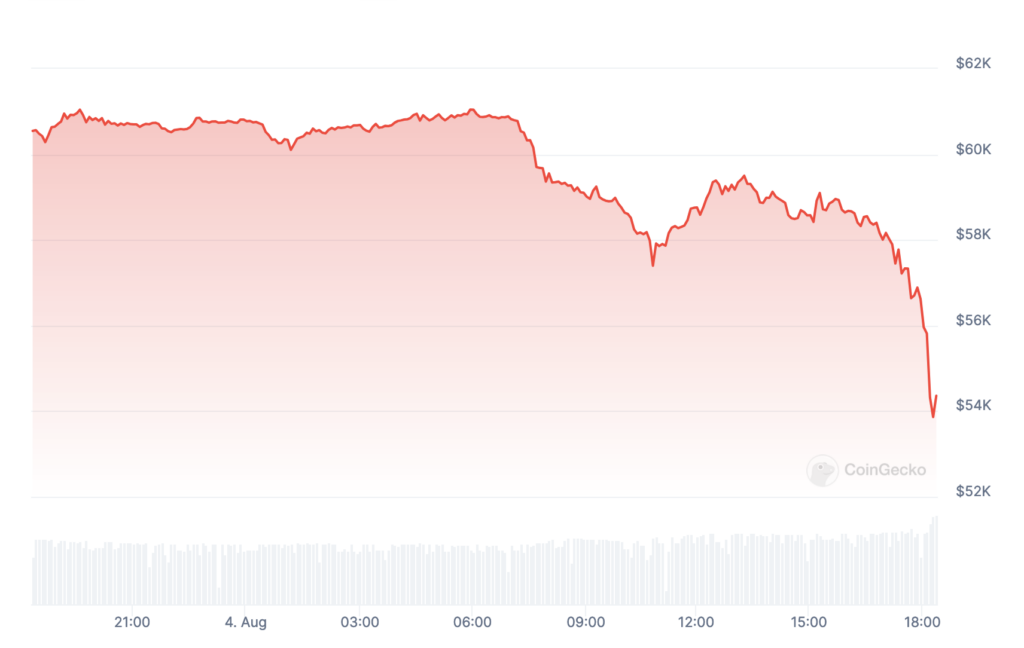Tokens in crypto are often a dime a dozen, quite literally. Generating a token is almost trivial; new ones are minted every minute. To counteract this glut of new assets, a group of protocols has decided to build their economy first, consolidate a community, and add the token later; hence, tokenless protocols have broken onto the scene.
The appeal of no-token projects is the potential to receive an airdrop with no requirement to make an initial investment.
Among high-profile no-token protocols was the EigenLayer platform, which awarded “Eigen points” for re-staking LST-ETH. Currently, EigenLayer is going through an airdrop process, though immediate movement of the tokens may not be possible and the tokens are unavailable for all regions.
New Tokenless Protocols Gain Visibility in May
Bitcoin’s RGB is a no-token protocol, which does not sell a native asset. Games and Web3 projects have also launched without a token, aiming to build up a reputation first.
In May 2024, a long list of projects is either continuing without a token or planning an airdrop phase.
Most protocols offer infrastructure for trading or DeFi, including exchanges, bridges, swap mechanisms or prediction markets. Despite the lack of a token, those protocols are already locking in value.
Based on DeFi Llama statistics, more than 400 protocols are locked in above $1M, and about 140 projects with liquidity above $20M. When working on smaller projects, developers often incorporate DeFi, liquidity, and other Web3 infrastructure into their products. The biggest projects are dominated by various restaking platforms, trying to copy the success of EigenLayer.
Which Tokenless Protocol to Choose in May
Joining a tokenless protocol may still require some form of initial deposit, such as staking, or another investment to start farming points. Protocols also go through boom and bust cycles, and not all guarantee that the points earned will be eligible for a token. The token itself would also try to survive in the market. Despite this, farming a tokenless protocol is one of the crypto opportunities in May.
Tokenless protocols also require activity on the side of the user. Points or eligibility are earned in exchange for using bridges, trading, staking, providing liquidity, trade NFTs, complete tasks and milestones or for holding other assets. For crypto insiders, tokenless protocols may be a tool to gain additional value from activities they are doing anyway.
Tokenless Farming: Be Early, Avoid Scams
Tokenless protocols appeared in late 2023, and gathered speed in Q1 2024. User awareness means the competition is even tougher, and being early is the key to getting the highest rewards.
The game in May 2024 is to look for underfarmed protocols, where even a few small tasks can bring rewards, which can become valuable later on.
Tokenless protocols are also aggregated for more convenient farming. It is not unusual for power users to engage with as many as 100 protocols. This is possible on networks like Solana, Sui, Arbitrum and Binance Smart Chain, which have periods of extremely low fees.
Farming a tokenless protocol is also a matter of choosing a role and techniques that are known and comfortable for the end user. Most tokenless protocols require a wallet to engage, but may hold risks. Not all projects are audited, so getting exposed to a role in their ecosystem may be risky. Reward points also do not guarantee a favorable conversion to tokens.
Not all tokenless protocol farming is going smoothly. One of the high-profile projects, IO.net, issued points for running a user’s GPU for security and computation. Malicious users faked their GPU data to receive points without real work.
After the incident, IO.net resolved the bug and increased transparency, to make point distribution more fair. The project is now preparing for an imminent airdrop, while entering another reward cycle.
What are the Risks of Tokenless Protocols?
Like all crypto trends, tokenless protocols have reached hype status. The risks range from a waste of time to a loss of assets. Other risks include Sybil attacks and exploits from malicious farmers, who may find loops in the protocol and receive outsized rewards.
It is also unknown if the tokenless protocols will continue to be successful once the farming stops. The incentives to interact with the protocols may still depend on receiving rewards. The success of tokenless protocols also depends on the viability of the underlying technology and its use cases as part of the DeFi ecosystem.




 (@zekitaNft)
(@zekitaNft)  On April 25th, we faced a serious attack. Read our latest Medium article to find out how we tackled the challenges and what we learned from the experience.
On April 25th, we faced a serious attack. Read our latest Medium article to find out how we tackled the challenges and what we learned from the experience. 
 It's a deep dive into problem-solving and resilience!
It's a deep dive into problem-solving and resilience!



